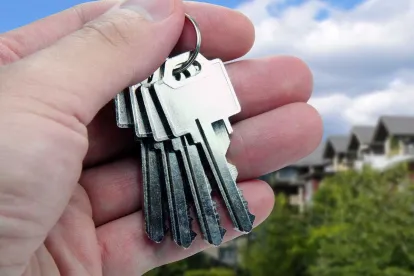Enforcing violations in a community association can be cumbersome, contentious and unneighborly. Depending on the nature and severity of the violation, the association may be able to exercise self-help and cure a violation such as overgrown grass. Alternatively, in severe situations, the association may be forced to pursue an emergency injunction.
The most common enforcement mechanism is the use of fines and suspensions. Although the idea is to provide a simple “in-house” remedy to avoid clogging the court dockets with disputes over minor violations, the reality is that the process to levy a fine or suspension can seem daunting. This advisory is intended to provide a basic understanding of the fining process and recommendations to utilize this remedy effectively and properly.
1. The Violation Must Be “Ripe”
Despite the severity or frequency of a violation, community associations may be required to provide warnings or cure opportunities before imposing fines and suspensions. Although the Florida Statutes do not require a community association to provide one or more warning letters, many covenants or internal enforcement policies self-impose a requirement to provide a warning. Many communities adopt enforcement policies or amend their governing documents to provide owners with one or two warning letters before the association will impose fines or suspensions.
Although this is good intentioned, the association may be precluded from pursuing a fine for a serious violation. For example, if an owner drives 60 mph through the community, it may not be enforceable if the association’s internal policy requires 10 days to cure a violation. When the car eventually slowed down, the violation was arguably cured. Likewise, if a tenant hosts loud parties late into the night every two weeks, the violation may be cured every night when the party ends.
Thus, the first recommendation is to review any internal policies and procedures to make sure the violation is ripe. If the community has self-imposed restrictions such as providing a warning or cure opportunity, it is recommended that the Board either remove these requirements or add a provision to allow the Board to skip the warning and cure requirements when there is a severe or egregious violation requiring immediate action.
2. The Board Must Vote
After the violation is ripe, the Board must vote to accomplish three tasks. First, the Board must vote to determine that a violation occurred. Second, the Board must vote to determine the number of dollars per day of the violation. Third, the Board must vote to determine the number of days to be fined at the daily rate determined above. Likewise, for a suspension, the Board must vote to determine the number of days of a suspension. The Board is not required to provide any special notice to the offending owner other than its normal Board meeting and agenda requirements.
It seems arduous to have a Board meeting to levy fines of $20 every time, for example, a neighbor leaves out their trash cans. As a result, many communities adopt a policy which delegates authority to a specific person or group to carry out the three tasks listed above. The resolution could delegate authority to the property manager or an office to make these initial determinations. In addition, the Board could adopt a pre-determined schedule of fines for the most common violations. Together, this would avoid lengthy Board meetings to impose penalties for routine violations and still require a Board vote for unique or rare violations that would normally justify a discussion at the Board level.
3. An Impartial Hearing
After the Board (or its authorized designee) determines the amount of the fine or suspension, the association must conduct a hearing with an impartial committee of community members. The hearing committee may not be connected to current directors or officers and is intended to act as a neutral and impartial jury of peers. The committee’s role is to vote to approve or disapprove the fine or suspension approved by the Board. The committee will often ask questions, review photos, e-mails and incident reports relative to the act giving rise to the hearing and allow the owner to present a defense.
Confusingly, both the homeowners association and condominium statutes have historically provided that an association is required to provide “an opportunity for a hearing.” This can be interpreted to mean that the association must provide a hearing whether it is requested by the owner or not, but this was not a settled issue, as some communities would only provide a hearing if the owner requested a hearing.
Effective October 1, 2023, the Florida legislature amended Section 720.305 for homeowners associations to clarify that a hearing must occur before a fine is due and payable. Unfortunately, the same clarification was not adopted for Section 718.305 applicable to condominium associations. Nevertheless, it has always been my recommendation to schedule and conduct a hearing in all situations and irrespective of whether the owner requests a hearing.
4. Collection
If the hearing committee approves the fine, it is due and payable five days after the association provides notice to the owner of the approved fine. If the owner refuses to pay the fine, the association’s collection efforts will depend on the amount of the fine and the language in the association’s governing documents.
Chapter 720 governing homeowners associations provides that a fine of $1,000 or more may become a lien against a home. This means fines less than $1,000 must be collected as specified in the association’s governing documents or through small claims court. It is also recommended that the Board review the governing documents because some older covenants will expressly state that fines may never become a lien against a home. Chapter 718 governing condominium associations does not authorize fines of any amounts to become a lien against the condominium unit.
Generally, the association should work with its legal counsel to ensure that the Board’s goals and procedures align with the statutes and the association’s governing documents. If the Board desires to use fines and suspensions as a means of enforcement, the association should also be cognizant whether the Board pursued similar violations in the past and whether the Board is currently pursuing all known and similar violations to avoid a defense of selective enforcement.




 />i
/>i
